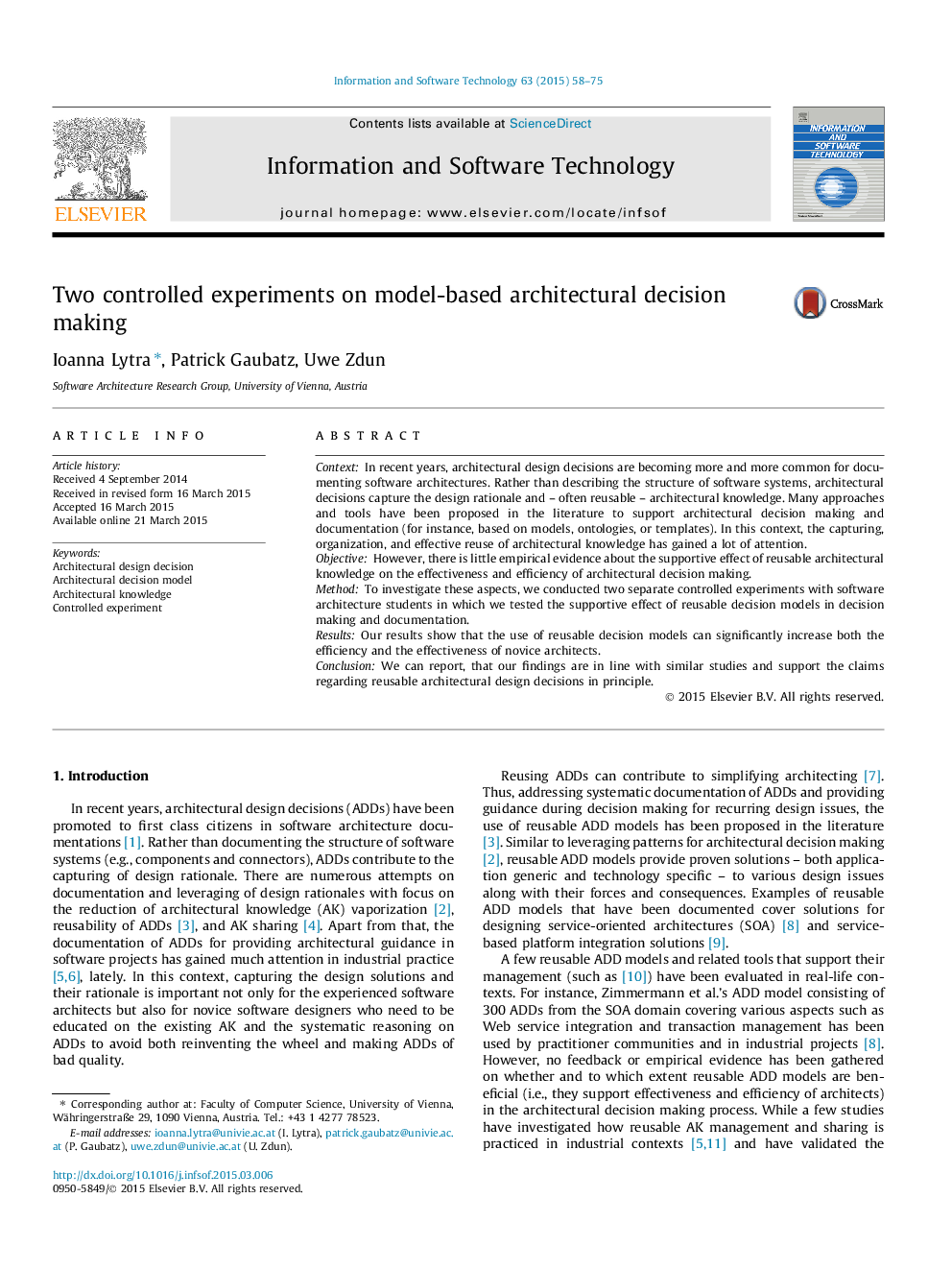| Article ID | Journal | Published Year | Pages | File Type |
|---|---|---|---|---|
| 549810 | Information and Software Technology | 2015 | 18 Pages |
•We conduct controlled experiments concerning reusable architectural decision models.•We measure the effect of decision models on decision making and documentation.•Reusable architectural decision models increase the effectiveness of users.•Reusable architectural decision models increase the efficiency of users.•We discuss the inference of our results for decision making by practitioners.
ContextIn recent years, architectural design decisions are becoming more and more common for documenting software architectures. Rather than describing the structure of software systems, architectural decisions capture the design rationale and – often reusable – architectural knowledge. Many approaches and tools have been proposed in the literature to support architectural decision making and documentation (for instance, based on models, ontologies, or templates). In this context, the capturing, organization, and effective reuse of architectural knowledge has gained a lot of attention.ObjectiveHowever, there is little empirical evidence about the supportive effect of reusable architectural knowledge on the effectiveness and efficiency of architectural decision making.MethodTo investigate these aspects, we conducted two separate controlled experiments with software architecture students in which we tested the supportive effect of reusable decision models in decision making and documentation.ResultsOur results show that the use of reusable decision models can significantly increase both the efficiency and the effectiveness of novice architects.ConclusionWe can report, that our findings are in line with similar studies and support the claims regarding reusable architectural design decisions in principle.
